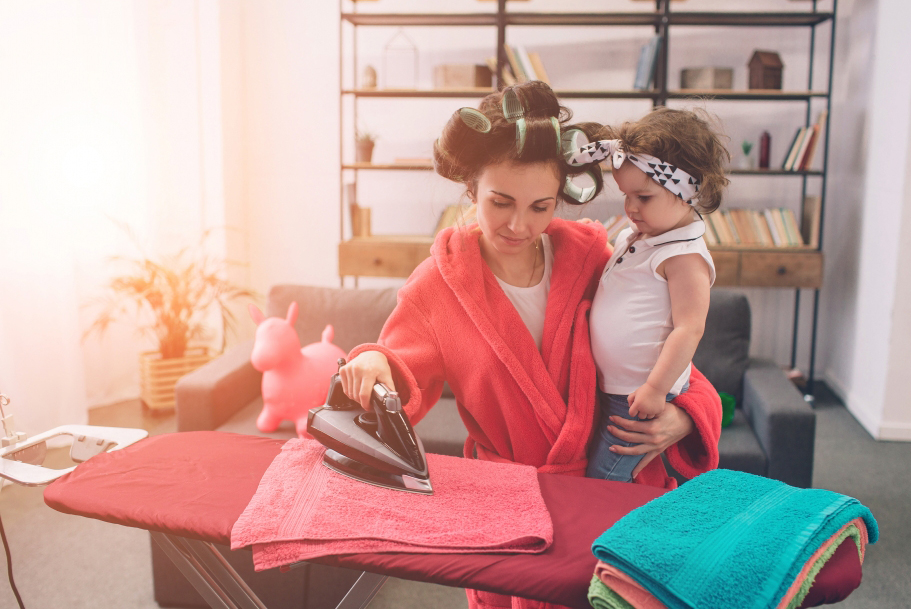How can homemakers cope better with an endless list of chores and people to take care of?
More commonly than not, homemakers are women. They’re the reason a house becomes a home. The fire in the fireplace. Mom. The engine that makes the household run smoothly. You get it! Without her, life grinds to a halt, doesn’t it?
This being said, the same engine should also get serviced once in a while! We cannot risk breakdown at any time, she’s too important! This commentary should not be mistaken as a prescription. We know there are variations in the lifestyles of most people who fit this category. We would just like to highlight some generalities of where common issues can be prevented.
What are we getting at? The daily rigors of a homemaker are not to be understated. If we just examine some of the more common tasks we associate with this group of people: cooking, cleaning, errands, managing domestic help, and childcare are extremely labor and energy intensive. The almost constant attention to all things related to the home can physically wear anybody out, not to mention having to deal with it on a daily basis. Many of these activities are repetitive in nature and require some observation. Here are some of the daily chores and activities that can cause pain, discomfort or injuries that go unnoticed:
COOKING

Starting with preparation, much of the task is spent standing in a fixed position, bent over a counter set at an awkward height. Cutting, cleaning, mixing, all are performed in the same posture. For many, that slight inclination creates a pressure in the upper back, or strain in the lower back, or both.
The Fix: This can be countered by using a short foot stool. It might seem a bit of an encumbrance, but this is a wonderful kitchen addition. By placing one foot on the stool while standing and working, a lot of pressure is released from the low back. Make sure to switch feet every few minutes and stand with both feet on the floor for some time as well.
LAUNDRY

Laundry is another injury-causing activity. The repetitive bending for loading and unloading the washing machine for those with that facility, or the physical load of hand washing many garments. Also, the hanging of heavy, wet clothes can create a surprising energy consuming task for the forearms, shoulders, and low back.
The Fix: It’s okay to take breaks! So often, the need to complete a task all at once is unnecessary. Having a rest for a couple of minutes to relax tired muscles isn’t lazy, it’s smart! It can prevent cramping and spasm, it provides an opportunity for hydration or personal hygiene, and can allow for a moment of introspection. Staying hydrated over the day is often overlooked and can really make a huge difference for the body. Surely these benefits outweigh moving on to the next task.
LIFTING

So many activities require some amount of strength, whether we’re talking about the arms (repetitive tasks like dishwashing – pots and pans full of water weigh quite a bit!), the back (moving a couch, or lifting groceries), or even the core muscles (all of the above!). We often feel sore when the muscles dedicated to a task are overworked. It’s important to take rest between heavy lifting activities to allow the muscles to recover fully before taking on a load once more. The other major thing to consider is the form with which you lift.
The Fix: Having your ‘centre of gravity’ in the right location whenever lifting is the best way to lift safely. Weights should be lifted with your whole body, not just one body part, for example just an arm or just your back. Bending the knees, assessing the load, and working smartly will help prevent lifting injuries. Keep the load in a manageable area in front of you, without overextending the spine, or rounding your back. Any lifting overhead should very strictly be followed by a period of rest. Stretching after any major lifting will really benefit you in the long run, so schedule your tasks accordingly!
MENTAL HEALTH

We have discussed physical issues, but we know that the challenges associated with running a home can be mentally exhausting as well. The stress associated with keeping everybody on schedule, managing your own time, and maintaining your space can really add up. Multiply this by 2 or 3 if you have elderly parents, visiting family members, or other extenuating circumstances to consider. Mental stress can increase inflammation in the body through a complex set of chemical reactions. More inflammation means the body feels more pain, or is more sensitive to pain. In fact, mental stress can be attributed as a causative factor to many long-term disorders, including chronic pain, chronic fatigue, anxiety, and depression.
The Fix: The mind needs rest too! Scheduling time for yourself is crucial in maintaining good body/mind balance. This doesn’t have to include candles and wind chimes! Spending time on a hobby, reading a good book, or catching up on a show on Netflix are all fine to do by yourself. Your brain is a terrifically organized system, it can get sidetracked though. In order to care for everyone around us and be effective at what we do, we can’t afford to burn out. Just remember to not get carried away, as sitting for long periods of time can also increase mechanical stress on your joints. Aim to change your position every 30 mins for best results.
While these fixes are quick and help relieve certain possible discomfort and pain, it’s always a good idea to make sure your body is fit and healthy to take on the extra load. Regular chiropractic care can definitely help to maintain posture, relieve pain and stay injury free. We love working with people who are looking to find relief and are ready to take proactive steps towards staying active and enjoying the additional health benefits of preventative care. If that sounds like you, we invite you to connect with us today!
#BeLifeReady with #PreventiveChiropracticCare

